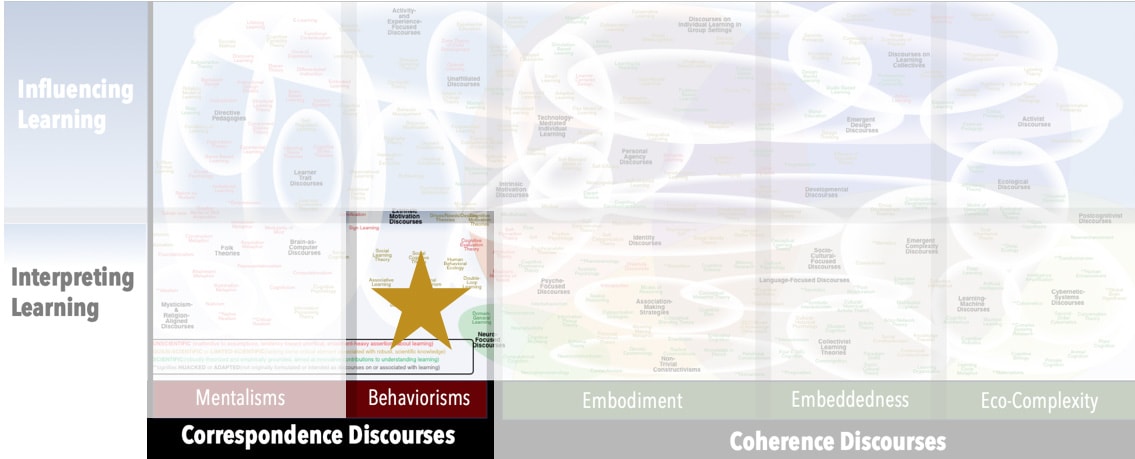AKA
Associationistic Learning Theory
Focus
Associations between identifiable environmental stimuli and observable measurable behaviorsPrincipal Metaphors
- Knowledge is … repertoire of behaviors
- Knowing is … behaving (triggered by stimuli)
- Learner is … a connection-maker (organism-in-context)
- Learning is … changes in behavior (linking stimuli to responses)
- Teaching is … training; engineering behavior (through deliberate conditioning)
Originated
late-1800sSynopsis
Associative Learning refers to processes involving linking a stimulus and a response. Most prominently, it includes Classical Conditioning and Operant Conditioning. (Associative Learning should not be confused with Associationism (see Association-Making Metaphor), which refers to a much broader principle that is invoked across a wide array of discourses.) Important constructs include:- Associative Shifting – when a response made to a specific stimulus starts to be elicited by another stimulus. Associative Shifting can be deliberately triggered by gradually altering the stimulus over a series of trials.
- Associative Strength – a comparative notion, referring to the strength of association between a stimulus and the response that it triggers
- Associative Structure – the principal that, for bits of learning that are associated in memory (for whatever reason), when one is recalled, the others are likely to be recalled as well
- Reinforcement Theory – any theory that is centrally based on the principle that reinforcement – i.e., some type of reward or feedback – is necessary for learning
- Error Factory Theory (Harry Harlow, 1960s) – the hypothesis that learning is as much (or more) about suppressing and eliminating associations (i.e., those responses seen as “errors”) as it is about generating and strengthening associations (i.e., those responses seen as appropriate)
- Disequilibrium Hypothesis (William Timberlake, 1980s) – the postulate that preventing access to a specific response renders that response more and more reinforcing
Commentary
See Behaviorisms.Authors and/or Prominent Influences
See Behaviorisms.Status as a Theory of Learning
See Behaviorisms.Status as a Theory of Teaching
See Behaviorisms.Status as a Scientific Theory
See Behaviorisms.Subdiscourses:
- Associative Shifting
- Associative Strength
- Associative Structure
- Disequilibrium Hypothesis
- Error Factory
- Reinforcement Theory
Map Location

Please cite this article as:
Davis, B., & Francis, K. (2021). “Associative Learning” in Discourses on Learning in Education. https://learningdiscourses.com.
⇦ Back to Map
⇦ Back to List
